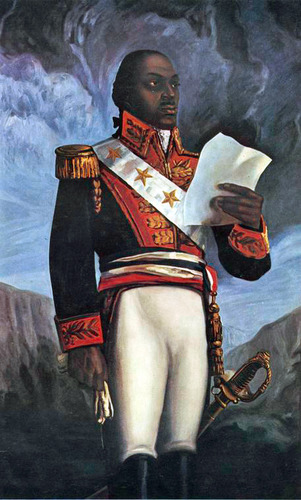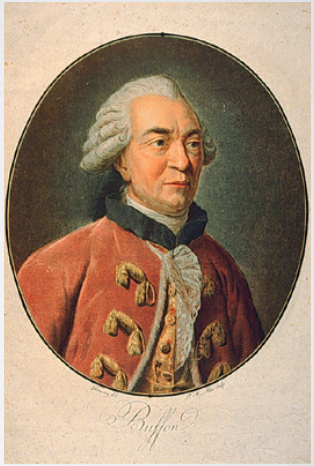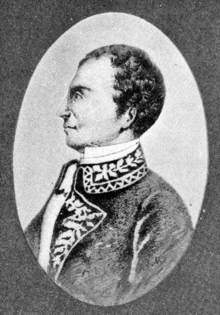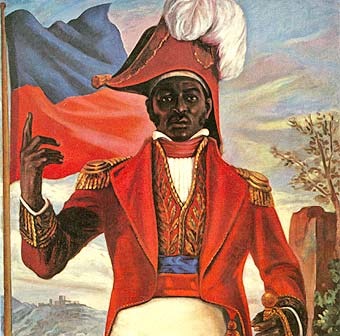Haitian Revolution
0.0(0)
Card Sorting
1/25
Earn XP
Description and Tags
Study Analytics
Name | Mastery | Learn | Test | Matching | Spaced |
|---|
No study sessions yet.
26 Terms
1
New cards
Hispaniola
first Caribbean island settled by spain / collumbus, present day Haiti and the Dominican Republic
2
New cards
Santo Domingo
The Spanish owned part of Hispaniola.
3
New cards
Saint Domingue
The French owned part of Hispaniola.
4
New cards
Boukman Dutty
was an early leader of the Haitian Revolution, A maroon who was the leader of the rebellion in the north in 1791 that historians generally consider the start of the Haitian Revolution. He is considered to have been both a leader of maroons and vodou.
5
New cards
Tainos
The native people of Hispaniola.
6
New cards
Vodou
A religion created by the diverse enslaved population of Saint-Domingue, a religion still practiced by the majority of Haiti's population today. colonial authority saw the practice of this religion as a threat to their authority. this practice provided a way enslaved people could assert independent control over there lives.
7
New cards
Social classes in St. Domingue
Grand Blanc, Affranchis, Petit Blanc, Enslaved people.
8
New cards
Grand Blanc
Wealthy white plantation owners
1st class
Owned the plantations
Lived in France
Made most the money
Angry at France - Trade rules
1st class
Owned the plantations
Lived in France
Made most the money
Angry at France - Trade rules
9
New cards
Affranchis
The free people of color on Saint-Domingue.
2nd class
Usually mixed ethnicity
Children of slaves & Grand Blancs
Stability - some political power
Angry at France - Subject to legal discrimination
sometimes slave owners but discriminated against.
2nd class
Usually mixed ethnicity
Children of slaves & Grand Blancs
Stability - some political power
Angry at France - Subject to legal discrimination
sometimes slave owners but discriminated against.
10
New cards
Petit Blanc
lesser whites, artisans, merchants etc
3rd class
Labors/workers
Poor (But not slaves)
Usually white
Angry at France - The wealthy people of color
3rd class
Labors/workers
Poor (But not slaves)
Usually white
Angry at France - The wealthy people of color
11
New cards
Enslaved people
people who worked on farms and platations for no pay
bottom class
Most were brought to Haiti from Africa
Worked the sugar farms
Vast majority of people in Haiti
Angry at France - about being slaves
bottom class
Most were brought to Haiti from Africa
Worked the sugar farms
Vast majority of people in Haiti
Angry at France - about being slaves
12
New cards
Important people in Haitian Revolution
Boukman Dutty, Toussaint Louverture, Rigaud, Dessalines, and Leclerc.
13
New cards
Toussaint Louverture
a former enslaved person who controlled the north and west regions. Leader of the Haitian Revolution. He freed the slaves and gained effective independence. He led the blacks to victory over the whites and free coloreds and secured native control over the colony in 1797. he was not liked all that much by enslaved people in saint domingue.

14
New cards
LeClerc
Napoleon's brother in law sent to take back Saint-Domingue and reinstate slavery in response to Louveture's constitution. he was sent to invade saint domingue to capture louverture.

15
New cards
Rigaud
an affranchi leader who controlled most of the south. When the british invaded saint-domingue he and Louverture worked together to defeet the british. rigaud turned against Louverture when they were fighting for power which caused a civil war. he lost and was exiled to france by Dessalines.

16
New cards
Dessalines
The sucesor of Toussaint Louverture once Louverture was captured and died. He declared Haiti an independent country.

17
New cards
Declaration of the Rights of Man and the Citizen
French Revolution document that outlined what the National Assembly considered to be the natural rights of all people and the rights that they possessed as citizens
18
New cards
Abolitionist
A person who wanted to end enslavement and the slave trade.
19
New cards
maroons
Runaway enslaved individuals
20
New cards
War of the Knives
The Civil War that broke out in july of 1799 between Louverture and Rigaud to determine who would control Saint-Domingue and whose interests would be promoted in the new society.
21
New cards
beginning of the revolution(1790-1793)
French Revolution begins
Declaration of the Rights of Man and the Citzen
1791 - Boukman Dutty leads revolts, plantations burned, whites poisoned
1791 All people including people of color are granted equal rights - as long as they were men, owned property and weren't children of slaves
1793 Great Britain and Spain join the fight to control Saint Domingue
Spanish and Louverture join forces against the French
Declaration of the Rights of Man and the Citzen
1791 - Boukman Dutty leads revolts, plantations burned, whites poisoned
1791 All people including people of color are granted equal rights - as long as they were men, owned property and weren't children of slaves
1793 Great Britain and Spain join the fight to control Saint Domingue
Spanish and Louverture join forces against the French
22
New cards
Middle of the revolution(1794-1800)
1794 - France issues decree freeing all the enslaved peoples
1794, Louverture switches sides from Spanish to French
1794 - decrees ratified freeing the enslaved peoples
1794 Louverture becomes sole governor of Saint Domingue
1795 Spanish signs peace treaty and leaves Saint Domingue
1799-1800 War of the Knives between Louverture and Riguard in North
1794, Louverture switches sides from Spanish to French
1794 - decrees ratified freeing the enslaved peoples
1794 Louverture becomes sole governor of Saint Domingue
1795 Spanish signs peace treaty and leaves Saint Domingue
1799-1800 War of the Knives between Louverture and Riguard in North
23
New cards
End of the revolution(1801-1804)
1801 Louverture takes over Santo Domingo side of the island, issues constitution, abolishes slavery
1802 - Napoleon sends his brother in law LeClerc to battle Louverture
Louverture captured and sent to France
1804 - Dessalines officially declares independence on January 1st. The former colony is renamed Haiti
1802 - Napoleon sends his brother in law LeClerc to battle Louverture
Louverture captured and sent to France
1804 - Dessalines officially declares independence on January 1st. The former colony is renamed Haiti
24
New cards
What are the roles and responsibilities of women and minority groups in the revolution?
they participated in the revolt. women protested working on the plantations, they practiced vodou once they became maroons because they wouldn't be punished, they also particapated in fighting in the anti-colonial haitian military.
25
New cards
How did other European countries interfere with the Haitian Revolution?
Britain and Spain interfered with the Haitian revolution against Saint Domingue and France. Britain and Spain interfered by being on the side of the rebels to try and eventually have power over Saint Domingue. Britain and Spain also wanted to take advantage of France while they were weak.
26
New cards
How did the Haitian Revolution end?
The rebels got a huge victory against france. The goal of the rveolution was made with no more slavery but it it also ended France's rule over the colony. Land redistribution among former slaves and free blacks, Most successful slave revolt, first modern nation governed by people of african descent.